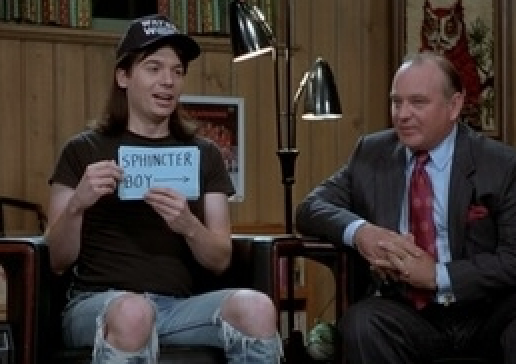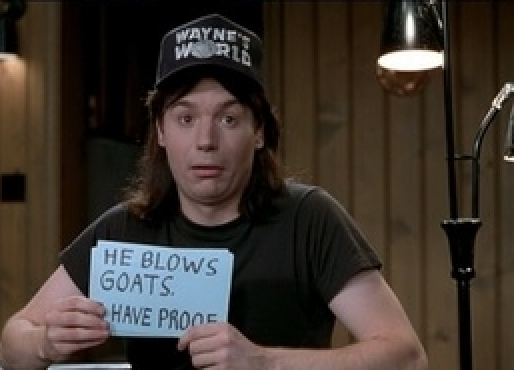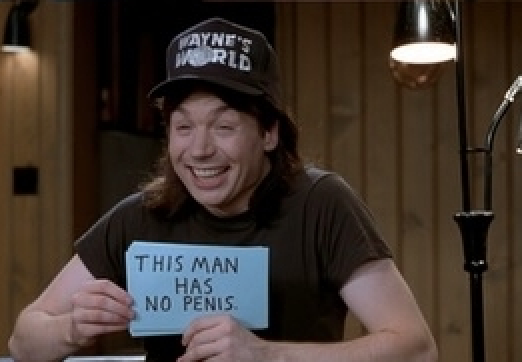[Warning: Major spoilers for John Wick: Chapter 2 ahead. Don’t read unless you’ve seen the movie or don’t care about being spoiled.]
At the end of John Wick: Chapter 2, the eponymous hero (Keanu Reeves) strolls into The Continental, the posh assassins-only hotel in downtown Manhattan, points a gun at bad guy Santino D’Antonio (Riccardo Scamarcio) and blows his head off despite the protestations of Winston (Ian McShane), the hotel’s proprietor. This is a violation of the most sacred rule in the underworld: The Continental is safe ground. No assassin may kill another on the premises without paying the ultimate price, a penalty we saw play out at the end of the first film. A severe punishment for the breach of a severe covenant.
Soon after, Winston summons John to Central Park to mete out the same sentence. John is informed that he is "excommunicado," that he can no longer seek refuge at any Continental hotel, and a $14 million contract has been put on his life. Every professional killer in the world will now be looking for him. Out of respect, John is granted a one hour head start to run. But before leaving, John issues this chilling ultimatum:
"You tell them, whoever comes, I'll kill them. I'll kill them all."
Oh man, it’s so good I just got goosebumps typing that. If this film is any indication, John Wick: Chapter 3 promises to be a highly entertaining bloodbath.
Anyway, while the whole mishegas was playing, I was thinking about contract damages and whether John’s actions, bad as they were, deserved such serious punishment. I know it’s silly to presume traditional contract principles apply in an underworld populated by killers and other bad men, but the Wickverse is steeped in rules and formality and the films go to great lengths to showcase that. Everything is intricately choreographed. The system is built on profound order and relies on respect for that order. It doesn’t matter if you’re a lowly factotum or the famed Baba Yaga, the system comes before the man and everyone must pay what they owe. The contracts may not be written on paper, but they exist, and participation in this world requires that everyone meet their contractual obligation - we can call this one the Implied Covenant of Assassination Forbearance.
So humor me for a bit. John agreed to the rules of The Continental, then blatantly flouted them to exact his revenge on Santino. A kill order is placed on his life in order to appease the system. Is that bounty fair? It’s an important question to ask because fairness is at the heart of calculating damages in contract or tort law. How do we make the injured party whole again? How do we make it so that the injuries they sustain are offset as much as possible?
It can be done monetarily, of course. That’s the way we usually resolve contract disputes in the U.S. Compensatory Damages are financial in nature, the most common of which is what lawyers call Expectation Damages: the damages that are intended to cover what the injured party expected to receive from the contract.
There are other types of monetary damages too. Consequential Damages, which are paid to the injured party for indirect damages other than contractual loss; Liquidation Damages, which is when the contract states that the breaching party will be liable for a specific amount of money; Nominal Damages, which are awarded when the injured plaintiff doesn't incur a monetary loss but the judge wants to show the winning party was in the right; and Restitution, which is an equitable remedy designed to prevent the breaching party from being unjustly enriched.
In this movie though, the damages aren’t monetary. While money - paid in the form of gold coins - is important to many operators in the Wickverse, to those in power, it's less important than honoring the system (the entire plot hinges on the importance of a blood oath John made). Instead, the damages to be paid = John’s death. But John’s death isn’t just about making The Continental whole again. It’s to send a message. John didn’t just kill some random person, after all; Santino was a member of the shadowy High Table, a cabal of crime lords alluded to throughout the film, but never seen. The High Table presides over the entire Wickverse, and everyone works for or with them to some degree. So the price on John’s head is also about removing a level of chaos that John has introduced into the system. To the powers that be, he must be punished severely enough that it deters future assassins from making the same choices. $14 million and every killer in the world gunning for you sounds like a pretty major deterrent. And to me that sounds an awful lot like Punitive Damages.
According to the New York State Court of Appeals, Punitive Damages are:
“available only in those limited circumstances where it is necessary to deter defendant and others like it from engaging in conduct that may be characterized as ‘gross’ and ‘morally reprehensible,’ and of ‘such wanton dishonesty as to imply a criminal indifference to civil obligations.’”
Punitive Damages come into play when Compensatory Damages aren't enough to make the injured party whole. They're also generally unavailable for contract disputes, but can be applied in contract situations where there’s an overlapping tort claim. So are there any tort claims that can piggyback onto the breach of contract claims The Continental and The High Table might have against John that could result in Punitive Damages? It’s a stretch, but I think there might be.
For The Continental, I would say their best tort claim against John would be Intentional Interference with a Prospective Economic Advantage. And while the elements of that claim differ by state, they generally are:
An economic relationship existing between the plaintiff and a third party containing the probability of future economic benefit to the plaintiff,
Knowledge by the defendant of the existence of the relationship,
An intentional act on the part of the defendant designed to disrupt the relationship,
Actual disruption of the relationship, and
Damages to the plaintiff caused by the acts of the defendant.
While proving all these elements isn’t a slam-dunk, I think a good lawyer could make them work. John knew that The Continental was a safe haven for professional killers, traveling there throughout both films to derive its benefits and utilize its unique services (the Sommelier and Tailor sequences in the second film are incredible). John also demonstrates previously existing relationships with various hotel staffers, including friendly bonds with the managers of both the New York and Rome branches. John is also plainly aware that many other assassins use the hotel for the same reason he does: for peace of mind that they won’t get whacked while on the job, as he makes several allusions to this throughout the two films. In fact, in the first film, after he’s attacked in his room by Ms. Perkins, John is able to subdue her and instead of killing her, he asks a fellow assassin named Harry to watch her, then report her to the manager. This is all to say that John clearly knows the hotel derives an economic benefit between itself and its specific customer base. This takes care of the first two elements.
The third element is John’s execution of Santino on Continental grounds, even as Winston tells him in the moment not to do it and what the repercussions would be if he did. The fourth and fifth elements are a bit harder to prove within the text of the film, since we don’t know if The Continental’s business suffers as a result of John’s actions. However, I think a reasonable argument can be made that business may be jeopardized. The whole benefit to staying at The Continental is that you can’t be killed there. It’s a safe place for everyone regardless of your criminal affiliation. If customers don’t feel safe there, they won’t use the hotel. If they don’t use the hotel, the hotel will lose money and cease to operate. You’d need some documentation to prove that assassins are now staying away from the hotel, but I think you could get there.
Because we've never seen The High Table and don't know the extent or type of its business, it's harder to say what economic harms they can pin on John Wick. I do think they could also benefit from an intentional interference claim though. What little we know of the group indicates that membership is incredibly coveted, and that each member controls certain geographic areas. The unexpected death of a member could result in lost profits from the various rackets they operate.
Look, obviously no one is taking John to court (though it wouldn't surprise me if an underworld judicial system pops up in the sequel), so I appreciate you humoring me on this little journey. I'm always looking for the legal footholds to latch onto, even if it's not really applicable. That said, everyone in the Wickverse operates out of a certain sense of justice that isn’t wholly divorced from our own. The High Table and The Continental owners certainly feel that having John Wick killed for his transgression is the right thing to do. A fair thing to do. That's what will make them whole again. And if the punishment is harsh, well it's deservingly so. John, on the other hand, has very different ideas about what's fair. And when those two concepts of fairness go head to head in the sequel, I imagine it'll be a bloody good time.













